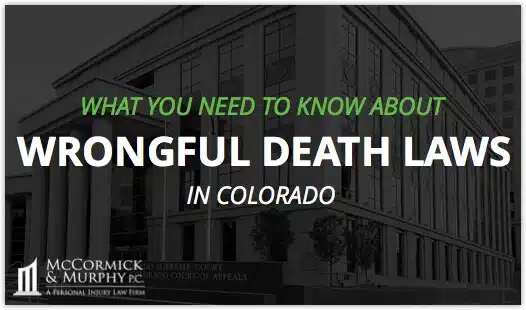Does Medicaid Cover Auto Accidents In Colorado?
Colorado is a fault state, which means that whoever was at fault in causing a car accident will be required to compensate any injured parties for medical expenses and vehicle repair.
In most cases, these kinds of claims are handled by the parties’ insurers.
However, determining fault and apportioning responsibility can take a substantial amount of time and injured parties are often forced to cover expensive medical treatments themselves and seek reimbursement at a later date.
For those who receive health insurance coverage from Medicaid, this means that although the federal insurance program will cover the cost of treatment, it will eventually seek reimbursement from the at-fault party.
Car accidents often involve a variety of complicated insurance issues. If you were recently involved in a car crash that was not your fault, you should speak with an experienced Colorado car accident attorney who can help explain the process of collecting compensation.
Contact us online or call (719) 249-0541 today for a free consultation.
Health Insurance Coverage
Even when a person was not responsible for a car crash, he or she may still be required to foot the bill for treatment until the at-fault driver’s insurer has investigated and paid the claim.
This can quickly become expensive, even for those who only suffer minor injuries.
The injured party may need to pay for some or all of the following expenses:
- Ambulance services;
- Emergency treatment;
- Overnight hospital stays;
- Prescription medications;
- Surgery;
- Rehabilitative services;
- Follow-up appointments;
- Transportation to and from appointments and treatment;
- Special medical equipment, such as wheelchairs;
- Appointments with specialists;
- Physical therapy; and
- Nursing assistance.
To ensure that injured parties receive the medical care that they need, the patient’s insurer is usually required to cover the cost of these types of medical expenses.
This is also true for those who receive coverage from Medicaid.
Will Medicaid Cover My Colorado Auto Accident Expenses?
For individuals covered under the health insurance program, Medicaid will pay for accident-related medical bills as long as the provider accepts Medicaid’s normal discounted payment for medical services.
However, because Medicaid is funded by both the federal and state government, all medical bills that are paid to an individual as a result of a third party’s negligence must eventually be reimbursed.
For example, in Colorado, if the state’s Medicaid program (Health First Colorado) pays an injured party’s medical bills, it will later attempt to recover those expenses from any settlement received by the injured party.
To ensure that the program receives reimbursement, federal law requires beneficiaries to notify Medicaid as soon as a settlement has been reached.
Furthermore, in Colorado, the Medicaid program is legally entitled to an automatic lien on all settlement funds. This means that it can collect reimbursement from the third party insurer before the claimant receives the rest of the settlement. According to statute, Medicaid is permitted by state and federal law to take all reasonable measures to identify and seek reimbursement from the legally responsible parties.
Collateral Source
In 2013, a Colorado Court of Appeals definitively asserted that Medicaid benefits qualify as a collateral source, which is defined as any entity (besides the at-fault party) that compensates an injured person for his or her injuries.
Evidence of payments made by a collateral source on behalf of an injured plaintiff cannot be admitted to trial. This means that even if a person uses Medicaid to pay for accident-related medical treatment and a case later goes to trial, the jury will not be permitted to hear evidence about how Medicaid paid less than what was actually billed by the medical provider.
Prior to this decision, insurance defense attorneys could argue that because Medicaid had a pre-negotiated contractual rate with a hospital, the injured party should recover a lower amount than what was actually billed.
However, since 2013, insurers are no longer allowed to mention the effect of health insurance on any claimed medical bills.
Contact an Experienced Colorado Car Accident Lawyer Today
Even when one driver was clearly at fault in causing a car crash, it can be difficult and time-consuming to settle an auto accident claim with his or her insurer.
To ensure that you receive coverage for your medical bills and to speak with a dedicated car accident attorney about your case, please contact the legal team at McCormick & Murphy, P.C. by calling (719) 249-0541, sending an online message, or by using our live chat feature today.











